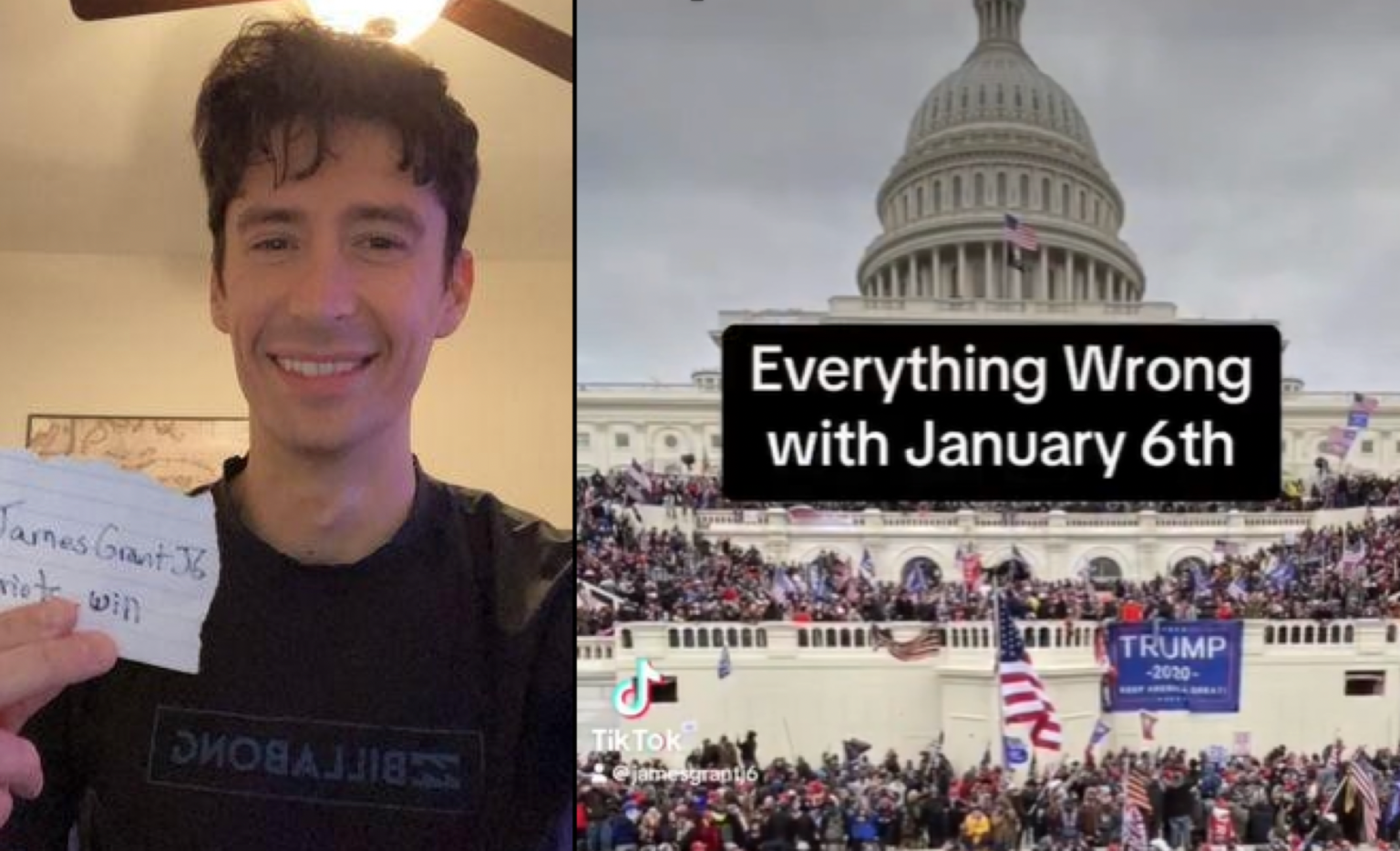James Tate Grant, a released political prisoner from January 6th, witnessed the initial breach of the Capitol and found himself in a precarious situation that led to his imprisonment. A promising political science graduate with aspirations of attending law school on a merit scholarship, James’s life took an unexpected turn. Instead of pursuing a legal education, he faced a sentence of three years in federal prison and an additional three years of probation. His conviction stemmed from a charge of pushing a fence, which the government later admitted had not harmed anyone. Despite this exonerating evidence emerging during the trial, authorities attempted to pressure him into accepting a plea deal that would have resulted in a lengthy prison term. Ultimately, what could have been a much worse outcome turned into a sentence that still felt excessively harsh, particularly as the government sought a nine-year term at sentencing.
James’s recent video, which has gone viral on social media, details the injustices faced by January 6th defendants, positioning his experience as a reflection of broader systemic issues. In the video, which garnered over 200,000 views, he critiques the portrayal of the events of January 6th by the media and government, particularly the false narrative that police officers were murdered that day. He emphasizes the coordinated nature of this deception, noting how high-profile politicians, including President Biden and Vice President Harris, perpetuated these claims. Additionally, James draws attention to the selective prosecution of individuals involved that day, particularly questioning why Ray Epps, who he claims played a significant role in inciting the crowd, has avoided serious charges unlike many others.
Adding further context to his experience, James reveals his proximity to Epps during the events, recounting a moment when he heard Epps encourage others to bring in more participants. Epps’s own text messages, in which he seemingly acknowledges orchestrating the breach, raise more questions about the accountability of individuals involved in the protests. James portrays Epps as emblematic of a larger issue of unequal justice—pointing out how those associated with left-wing movements, such as a pro-Palestinian protester who physically assaulted a police officer yet received minimal punishment, faced drastically lighter consequences than those implicated in January 6th. Such comparisons lead James to argue vehemently for the pardon of all individuals charged in relation to January 6th, framing them as victims of a political witch hunt.
James’s video is not just an exploration of his legal struggles but also serves as a commentary on the broader issues of police brutality and the government’s response to the events of January 6th. He expresses concerns about the fatalities that occurred that day, highlighting the cases of Ashli Babbitt and Roseanne Boyland among others, which he believes were exacerbated by excessive law enforcement force. His arguments emphasize a duality in how different groups are treated under the law, challenging the public to reconsider the narratives surrounding these incidents. The stark contrast between the realities he presents and the mainstream media portrayal encapsulates the sentiment of many who feel marginalized and misrepresented.
Despite the significance of his message, James has faced challenges related to censorship and freedom of expression as he shares his story. His viral video was labeled “misinformation” and taken down from platforms like TikTok, where his account was subsequently banned. The inconsistency of the reasons provided for the removal highlights the ongoing concerns about content moderation practices on social media, especially for those sharing dissenting views. After enduring years of incarceration, these actions add to his sense of alienation and frustration within a system he views as increasingly oppressive against those aligned with conservative beliefs or those caught in the political crossfire of events like January 6th.
In the aftermath of his release, James grapples with reintegrating into society while managing the constraints of supervised probation. He remains committed to pursuing his dreams, especially his aspiration to return to law school. Currently engaged in legal battles against media outlets he believes have defamed him, James is also fundraising to cover the initial costs required to initiate these lawsuits. His determination to clear his name reflects a resilience shaped by his experiences. With a notable appeal for donations to support his legal fight, he reassures potential supporters that any funds raised will be returned should he secure a favorable outcome in his cases, reaffirming a commitment to accountability even as he fights against the narratives that have marred his reputation.

